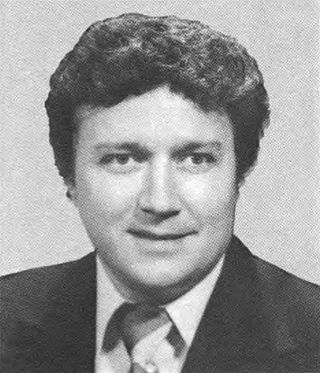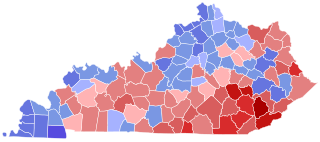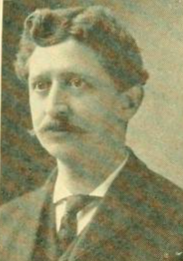Related Research Articles

Frank Swett Black was an American newspaper editor, lawyer and politician. A Republican, he was a member of the United States House of Representatives from 1895 to 1897, and the 32nd governor of New York from 1897 to 1898.

Michael Joseph "Ozzie" Myers is an American politician and convicted felon who served in the United States House of Representatives from 1976 to 1980. A member of the Democratic Party, Myers became involved in the Abscam scandal during his tenure in Congress and was expelled from the House after being caught taking bribes in a sting operation by the Federal Bureau of Investigation. He spent three years in federal prison. In 2020, he was accused of stuffing ballot boxes in Philadelphia elections during the 2010s, and charged with election fraud. He pleaded guilty in 2022 and was sentenced to 2.5 years in federal prison.
In the English and British tradition, the royal prerogative of mercy is one of the historic royal prerogatives of the British monarch, by which they can grant pardons to convicted persons. The royal prerogative of mercy was originally used to permit the monarch to withdraw, or provide alternatives to, death sentences; the alternative of penal transportation to "partes abroade" was used since at least 1617. It is now used to change any sentence or penalty. A royal pardon does not overturn a conviction.

Caleb Powers was a United States representative from Kentucky and the first Secretary of State of Kentucky convicted as an accessory to murder.

William Justus Goebel was an American Democratic politician who served as the 34th governor of Kentucky for four days, having been sworn in on his deathbed a day after being shot by an assassin. Goebel is the only sitting state governor in United States history to die by assassination.

William Lincoln Mathues was an American politician who served as Pennsylvania Treasurer from 1905 to 1906. Born and raised on a farm in Delaware County, Mathues attended public schools in Media, became a lawyer, and served as deputy sheriff and prothonotary between 1885 and 1904. He was convicted on corruption charges in connection to the Pennsylvania State Capitol graft scandal and died of pneumonia in 1908 before going to prison.

The 1899 Kentucky gubernatorial election was held on November 7, 1899, to choose the 33rd governor of Kentucky. The incumbent, Republican William O'Connell Bradley, was term-limited and unable to seek re-election.

George H. Battis was an American politician who served on the Boston Common Council, Boston Board of Aldermen, and the Massachusetts House of Representatives.
References
- ↑ "Chicago Tribune – Historical Newspapers". Chicago Tribune. Retrieved April 16, 2019.
- ↑ "Commonwealth of Kentucky v. Caleb Powers". Legal Information Institute. Retrieved April 16, 2019.
- ↑ "POWERS, Caleb – Biographical Information". bioguide.congress.gov. Retrieved April 16, 2019.
- ↑ "Frequently Asked Questions Concerning Executive Clemency | PARDON | Department of Justice". Archived from the original on November 28, 2017. Retrieved November 28, 2017.
- ↑ "Battis Three Years, Two for McCullough". The Boston Daily Globe. June 4, 1909.
- ↑ "Pardon Their Gift". The Boston Daily Globe. December 22, 1910.
- ↑ "Cases Decided in the Supreme Court of Michigan ..." Lawyers Co-operative Publishing Company. April 16, 2019. Retrieved April 16, 2019– via Google Books.
- ↑ "Official Directory and Legislative Manual". April 16, 1899. Retrieved April 16, 2019– via Google Books.
- ↑ "Frank Porter Glazier: entrepreneur and guardian of his own self-interest". AnnArbor.com. Retrieved April 16, 2019.
- ↑ "Frank Porter Glazier: entrepreneur and guardian of his own self-interest". AnnArbor.com.
- ↑ "Sullivan, William P." Political Graveyard. Retrieved May 17, 2015.
- ↑ Morrison, Abraham Cressy (March 9, 1907). "The Baking Powder Controversy". American Baking Powder Association – via Google Books.
- ↑ "The New York Red Book". Williams Press. April 16, 2019. Retrieved April 16, 2019– via Google Books.
- ↑ "Five Hearst Workers Admit Petition Frauds" (PDF).
- ↑ "Mathues, Convicted, Dies". The New York Times . December 31, 1908. p. 7.
- ↑ "Los Angeles Herald 31 December 1908 — California Digital Newspaper Collection". cdnc.ucr.edu. Retrieved January 10, 2017.